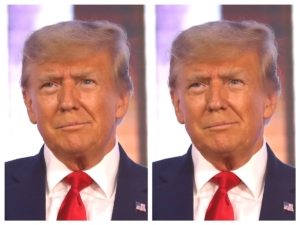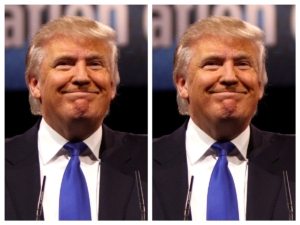President Donald Trump argued Saturday that NATO could bring the Russia-Ukraine war to a close by halting all purchases of Russian oil and slapping China with tariffs of up to 100% for continuing to buy Russia’s petroleum.
In a post on his social media platform, Trump said the alliance’s commitment to ending the war “has been far less than 100%,” calling it “shocking” that some NATO members still rely on Russian oil. Speaking as if addressing the alliance, he wrote, “It greatly weakens your negotiating position, and bargaining power, over Russia.”
Research from the Centre for Research on Energy and Clean Air shows NATO member Turkey ranks as the third-largest buyer of Russian oil after China and India, with Hungary and Slovakia also still importing. Whether Trump would directly challenge leaders such as Turkey’s President Recep Tayyip Erdogan or Hungary’s Prime Minister Viktor Orbán remains uncertain, raising doubts about whether his threats would materialize into actual tariffs or bans.
READ ALSO: Trump fires back after a reporter said he’s taken ‘no action’ against Russia
The timing of Trump’s comments coincided with heightened tensions in Eastern Europe. On Wednesday, Russian drones crossed into Polish airspace, an act of provocation against a NATO ally. Poland destroyed the drones, but Trump dismissed the incident by suggesting it “could have been a mistake.”
Secretary of State Marco Rubio offered a different assessment, labeling the drone incursion “unacceptable and unfortunate and dangerous.” Rubio said the crucial question was intent: “The question is whether the drones were targeted to go into Poland specifically. If that’s the case, that the evidence leads us there, then obviously that would be a highly escalatory move.”
Trump campaigned on ending the war swiftly but has been criticized for avoiding direct confrontation with Russian President Vladimir Putin. Last month, he hosted Putin in Alaska for talks that failed to produce progress, and Congress is now pressing him to back stronger sanctions.
Meanwhile, U.S. allies have signaled a tougher stance. At an emergency U.N. Security Council meeting Friday, acting Ambassador Dorothy Shea reportedly vowed the U.S. “will defend every inch of NATO territory,” warning that the drone attack “intentionally or otherwise show immense disrespect for good-faith U.S. efforts to bring an end to this conflict.” Britain followed with new sanctions, banning 70 ships accused of transporting Russian oil and blacklisting 30 people and firms, including suppliers from China and Turkey that provided Russia with weapons components.
In his Saturday post, Trump insisted that joint action by NATO could change the war’s trajectory. He wrote that banning Russian oil and imposing tariffs on China would “also be of great help in ENDING this deadly, but RIDICULOUS, WAR.” He proposed a tariff range of 50% to 100% that could be lifted if Russia agreed to peace, arguing that “China has a strong control, and even grip, over Russia,” and steep tariffs “will break that grip.”
READ ALSO: Putin asserts U.S. under Trump is receptive to Russia’s Ukraine position
The president has already imposed a 25% tariff on Indian goods due to its energy purchases from Russia, raising the total to 50%, though he has hinted at possible negotiations with Prime Minister Narendra Modi. His willingness to escalate against China, however, carries major economic risks.
Earlier this year, U.S. and China exchanged crushing tariffs, 145% from the U.S. and 125% in retaliation from China, which nearly froze trade between the world’s two largest economies. That standoff ended only after both sides eased their measures, with the U.S. dropping its rate to 30% and China reducing its own to 10%.
Trump also used his weekend post to blame the war on his predecessor, Joe Biden, and on Ukrainian President Volodymyr Zelenskyy. He pointedly left out Putin, whose 2022 invasion ignited the conflict.
The post followed a Friday call with finance ministers from the Group of Seven, during which U.S. Trade Representative Jamieson Greer and Treasury Secretary Scott Bessent urged partners to unite in cutting off “the revenues funding Putin’s war machine,” according to Greer’s office.










